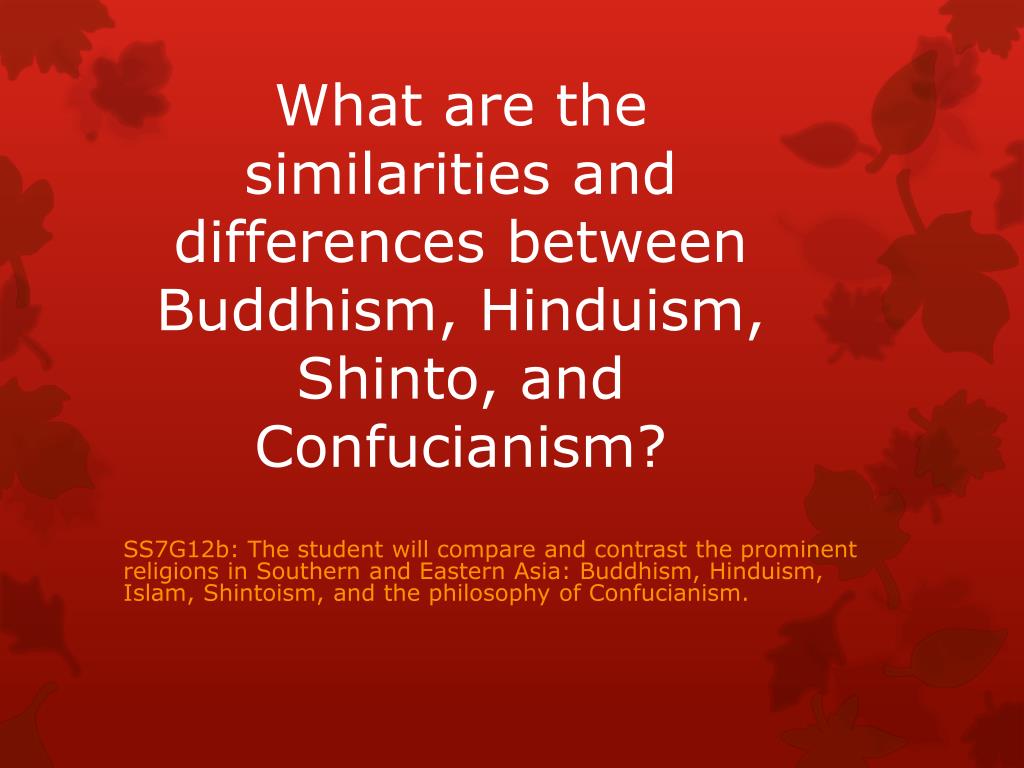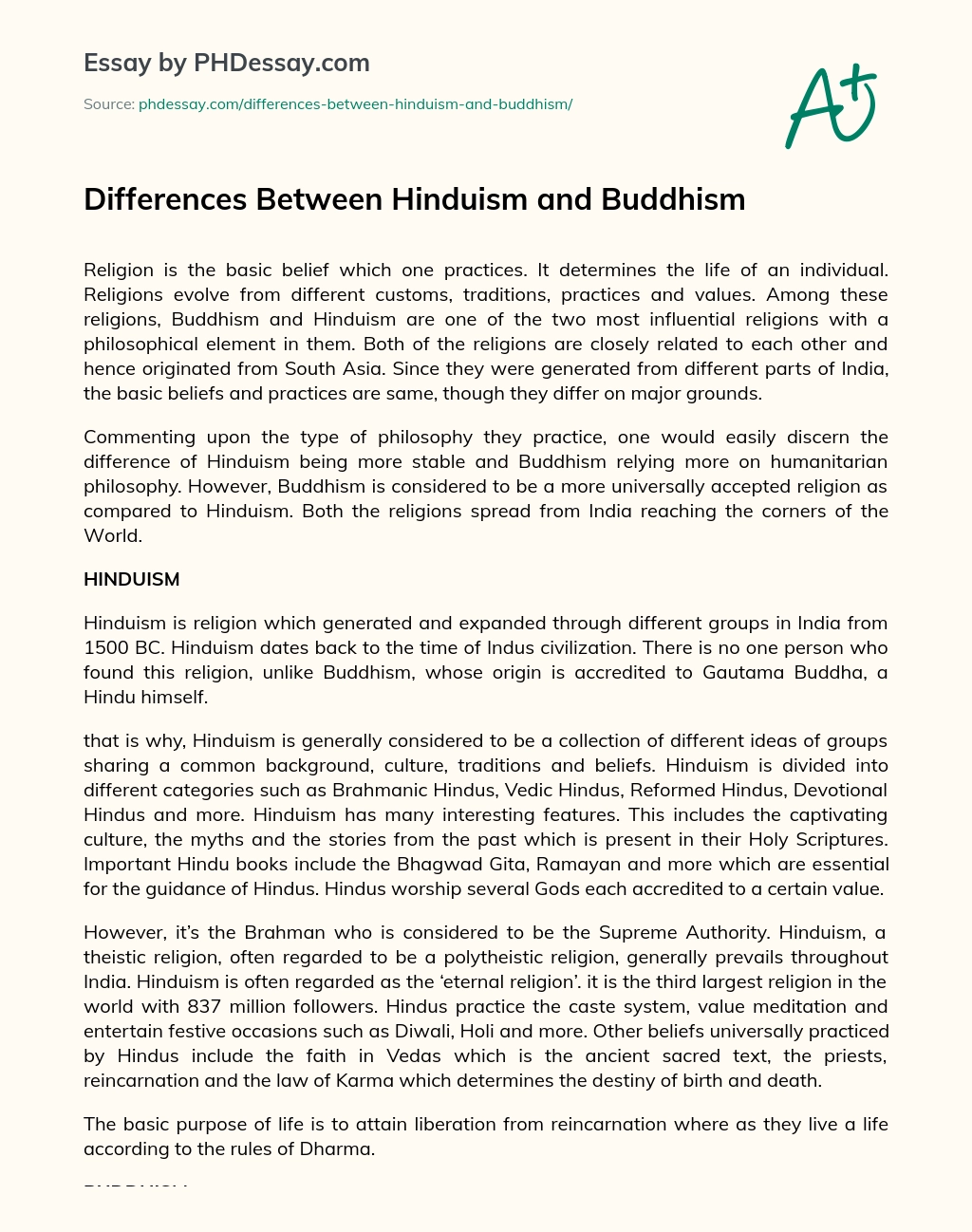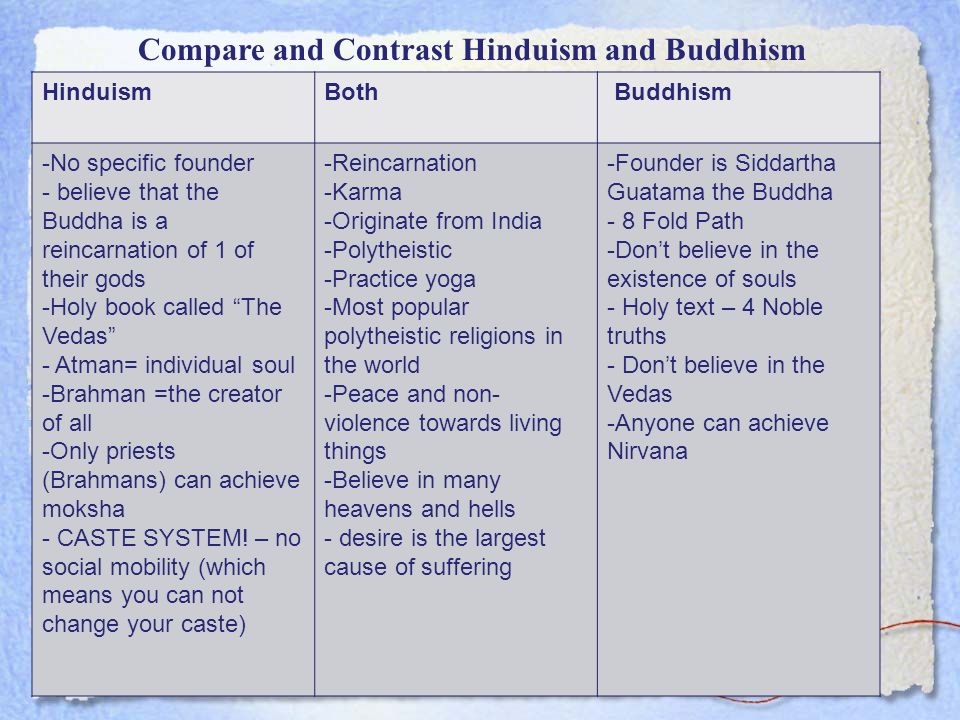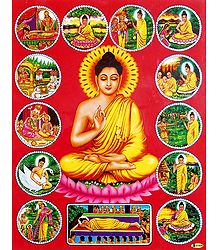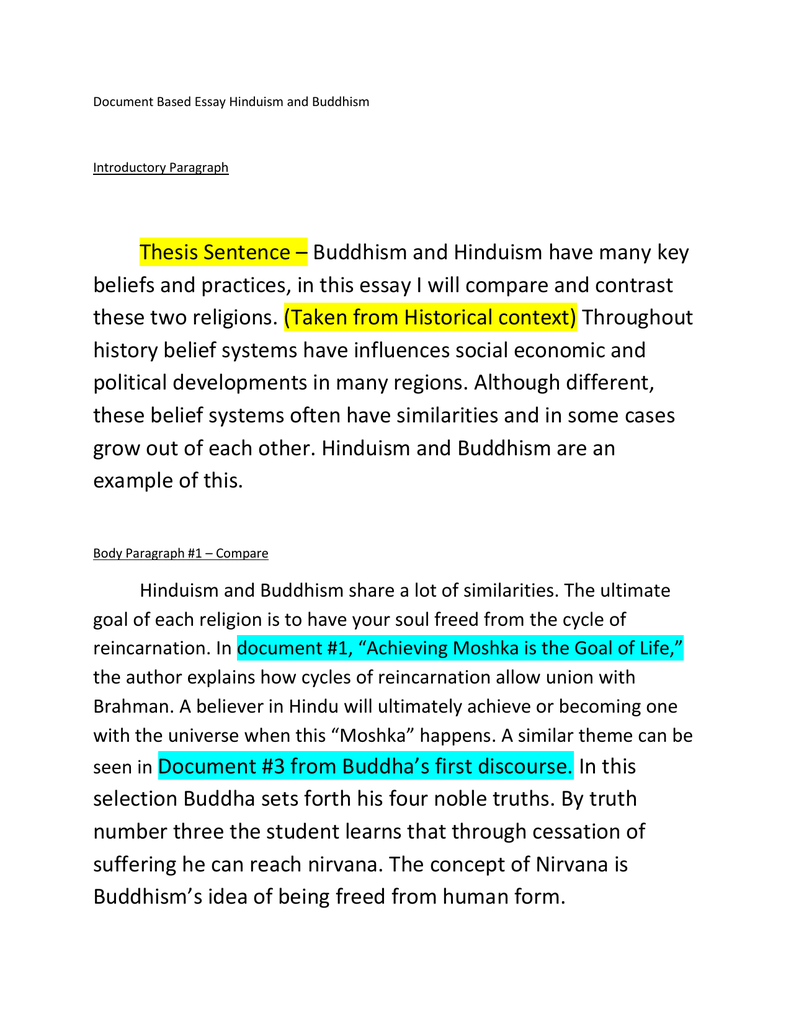Hinduism and Buddhism are two major religions that originated in South Asia and have had a significant influence on the cultural, philosophical, and spiritual traditions of the region. Despite their shared geographic and cultural roots, however, the two religions have a number of important differences as well as some significant similarities.
One of the most significant similarities between Hinduism and Buddhism is their emphasis on spiritual enlightenment and the attainment of spiritual liberation. Both religions teach that the ultimate goal of life is to achieve a state of enlightenment or liberation from suffering and the cycle of rebirth. In Hinduism, this state is known as moksha, while in Buddhism it is known as nirvana.
Both Hinduism and Buddhism also place a strong emphasis on the importance of ethical conduct and the cultivation of virtues such as compassion, kindness, and non-violence. Both religions teach that by practicing virtuous behavior, one can accumulate positive karma which can help to improve one's future lives and ultimately lead to spiritual liberation.
Despite these similarities, there are also a number of important differences between Hinduism and Buddhism. One of the most fundamental differences is the way in which the two religions understand the nature of the self and the ultimate reality. In Hinduism, the ultimate reality is seen as a single, eternal, and unchanging divine essence, known as Brahman. The individual self, or atman, is seen as a part of this divine essence, and the ultimate goal of life is to realize one's true nature as a part of this divine whole.
In contrast, Buddhism does not posit the existence of a permanent, unchanging self or soul. Instead, the Buddha taught that all phenomena are characterized by impermanence, suffering, and non-self. The ultimate goal of Buddhism is not to realize a permanent self, but rather to attain liberation from the illusion of self and the suffering that arises from attachment to it.
Another significant difference between the two religions is their understanding of the nature of the universe and the cycle of rebirth. In Hinduism, the cycle of rebirth, known as samsara, is seen as an endless cycle of death and rebirth determined by one's karma. In Buddhism, the concept of rebirth is not as clear-cut, and different schools of Buddhism have different teachings on the subject. Some schools, such as the Theravada tradition, believe in the existence of a subtle consciousness that carries over from one life to the next, while others, such as the Mahayana tradition, reject the concept of rebirth altogether.
In conclusion, Hinduism and Buddhism are two major religions that have a number of important similarities and differences. Both religions emphasize the importance of spiritual enlightenment and the cultivation of virtues, but they differ in their understanding of the nature of the self and the ultimate reality, as well as their teachings on the nature of the universe and the cycle of rebirth. Despite these differences, however, the two religions have had a profound influence on each other and continue to share a deep spiritual and cultural connection.
